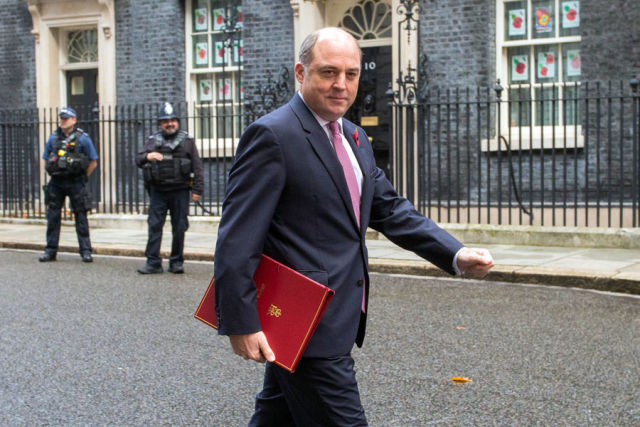The British Defense Minister believes that the conflict in Ukraine will continue in 2024 British Defense Minister Ben Wallace expressed confidence in the success of the planned Ukrainian counteroffensive, but did not rule out the continuation of the conflict next year.
The offensive of the Ukrainian army is scheduled for April-May, Kiev said earlier. At the same time, after the leak of US intelligence documents, which contained data on the plans of the Armed Forces of Ukraine, Ukraine had to adjust them.
Military operations in Ukraine are likely to continue in 2024, despite optimistic expectations from the planned Ukrainian counteroffensive, said the head of the British Ministry of Defense Ben Wallace.
The Minister also expressed confidence that in 2023 Ukraine "will maintain momentum and a strong position."
Wallace issued similar warnings in the fall of 2022. After the withdrawal of Russian troops from Kherson, he urged to stop underestimating Moscow and said that Russia is far from defeat.
The head of Ukrainian intelligence, Kirill Budanov, told reporters on April 17 that the AFU counteroffensive was "going according to plan," but he would not disclose the plans themselves. "In short, it will be amazing and fast," Budanov said.
In his opinion, Russia has switched to a "strategic defense operation" to hold the occupied territories and disrupt Kiev's offensive plans. At the same time, he said, Russian forces are fighting for the capture of Bakhmut (Artemovsk) and Avdiivka, which the Russian army is trying to encircle.
What is known about the AFU counteroffensive
Kiev and Washington announced the start of the Ukrainian offensive in the spring - presumably in April or May. According to the American magazine Newsweek, the leaked documents of American intelligence called the date of the planned operation: April 30. However, according to CNN, the Ukrainian military command had to adjust its plans due to the leak.
In the "merged" secret materials of the United States, the assessment of the prospects for the AFU counteroffensive was quite pessimistic. The documents noted that Ukraine would be able to achieve only "modest territorial acquisitions" that could not reverse the course of the conflict.
According to forecasts of European officials quoted by Bloomberg, the Ukrainian army may be able to advance and gain a foothold at a distance of 30 km, thus securing a springboard for future offensives in 2024.
Kiev's allies also expressed doubts about the expected offensive of the Ukrainian military on Melitopol: they are not sure that Ukraine will be able to achieve this goal in 2023.
In early April, the Kremlin noted that the Russian Defense Ministry was monitoring statements by Ukraine and Western countries regarding offensive plans.
"Unhealthy obsession" with offensive
In an interview with Newsweek, Ukrainian Ambassador to the UK Vadym Prystaiko expressed the opinion that in Ukraine and in the West there is an "unhealthy obsession" with the spring counteroffensive of the Armed Forces of Ukraine. According to him, "if something goes wrong," Kiev may begin to incline to negotiations.
"The whole importance of the counteroffensive, all the hopes that we place on it, is very unhealthy. If something goes wrong, or it is not successful enough - and what is enough? They will say that they knew this would happen, and now we have to sit down at the negotiating table," the diplomat said.
According to Prystaiko, now Russia has "achieved a lot" and therefore seeks to start negotiations.
He also claimed that Russia had "achieved the key objectives" of the military operation - it took control of a large nuclear power plant to supply Crimea with electricity and provided the peninsula with water.
Zelensky's visits to Avdiivka and Bakhmut
Ukrainian officials and military experts, referred to by The New York Times, declare that Russia is building up its forces in the Kherson region. According to them, the Russian military is laying mines, increasing the number of troops and building defensive barriers in anticipation of Ukrainian attacks.
Against the background of the planned offensive, Ukrainian President Vladimir Zelensky visited Avdiivka in the east of the country, where heavy fighting continues. On April 18, he heard the report of the commander of the operational-tactical group "Donetsk" on the situation in the area of his responsibility and talked with the servicemen. Previously, 30,000 people lived in this city, but many left with the outbreak of hostilities. According to the estimates of the Ukrainian authorities, about 1,800 residents still refuse to evacuate.
In March, the Ukrainian president made an unannounced visit to the Bakhmut district and in the same month visited the districts of the Kherson region to demonstrate determination and thank the Ukrainian soldiers.
According to him, Russian forces are "increasing the activity of heavy artillery and the number of airstrikes."
Alice Andreeva

